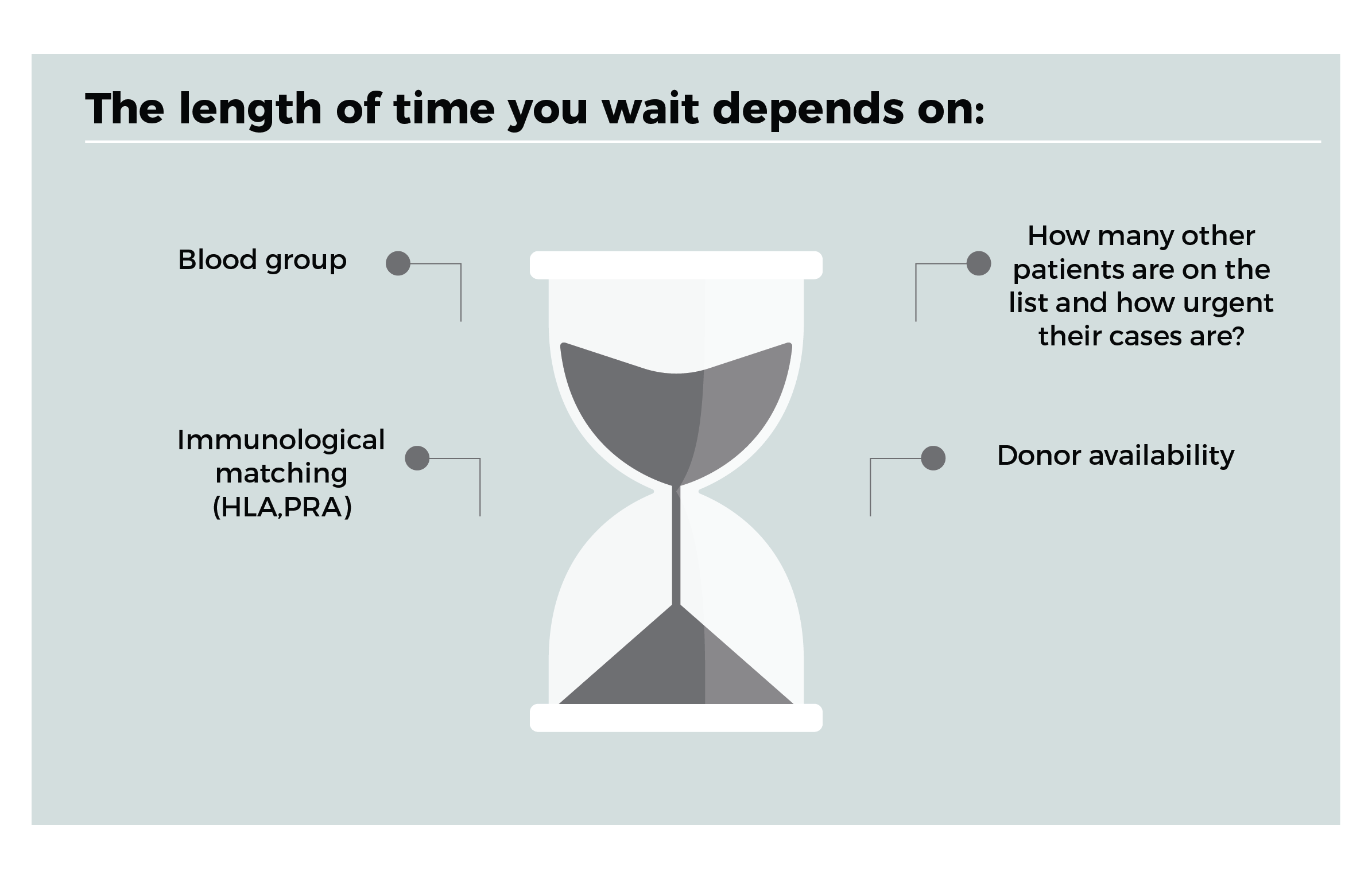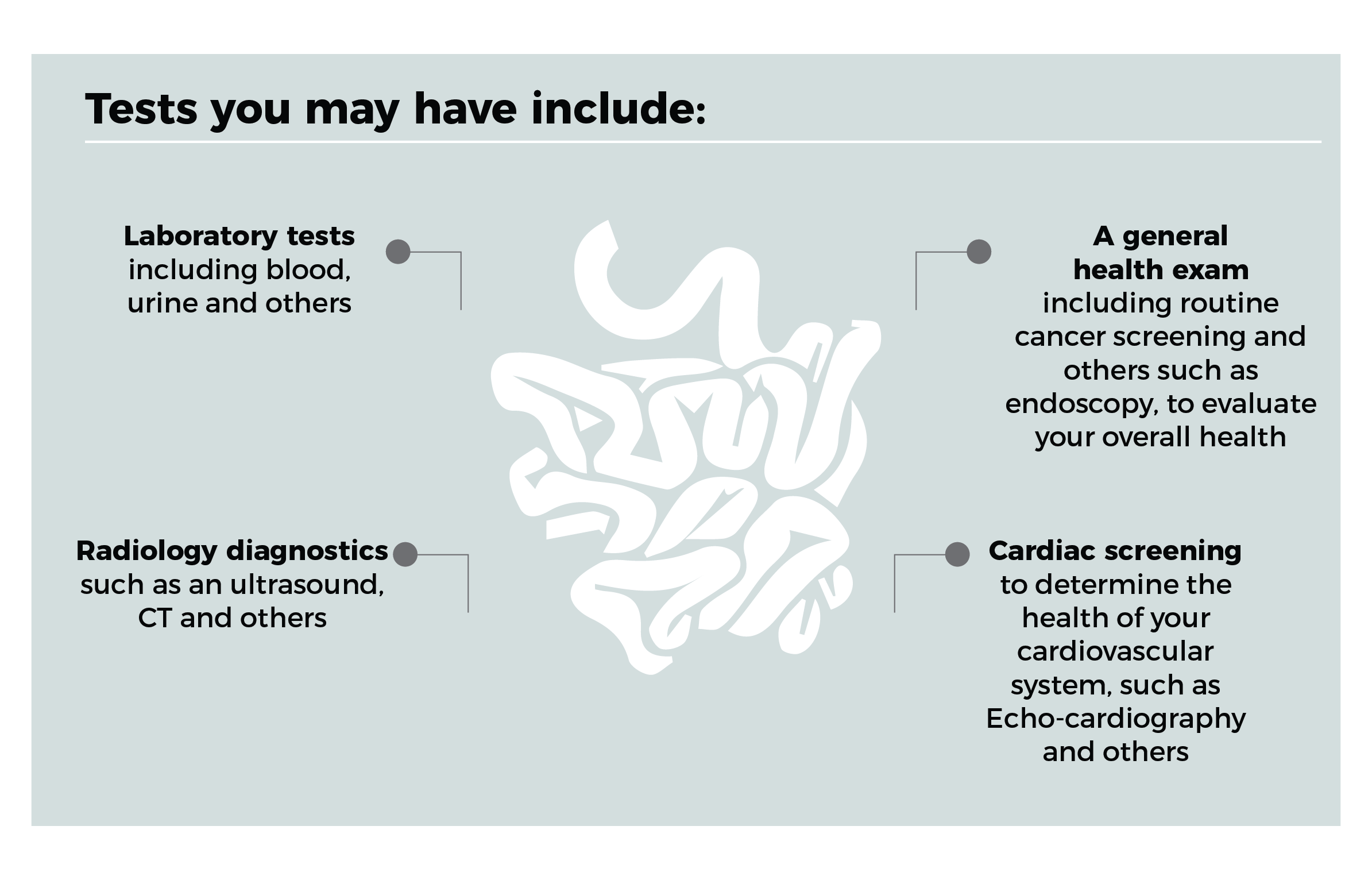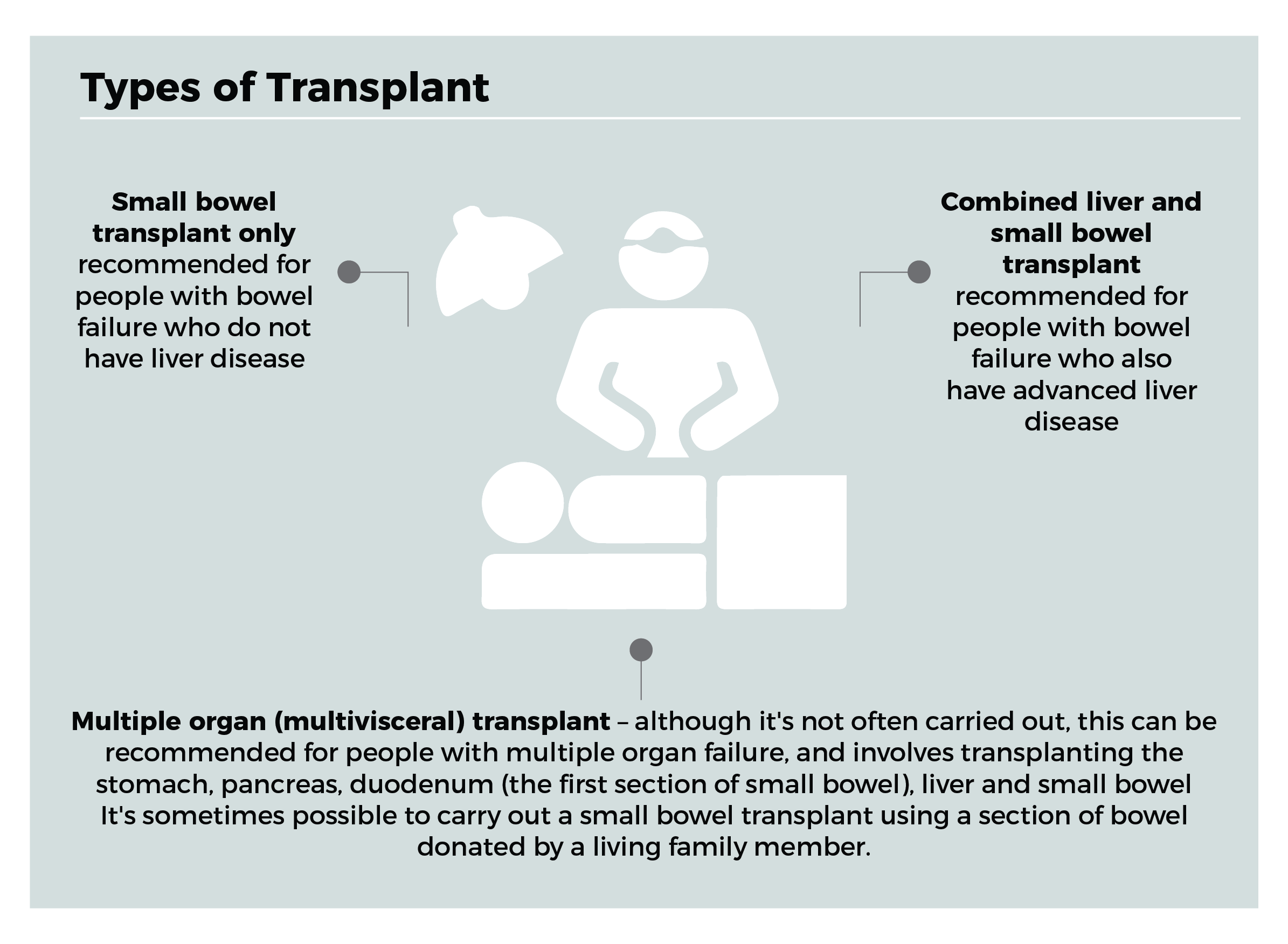Intestinal Transplant Program
Intestinal Transplant Program
King Faisal Specialist and Research Center Intestine Transplant Program is a top-ranked program Led by highly experienced professionals who are deeply passionate about the complex care required to treat patients for Intestinal transplantation in Saudi Arabia. KFSHRC has started the Intestinal/ Multi-visceral Transplantation in 2017 and is the 1st hospital in GCC to provide such a program.
Overview – What is intestinal transplantation?
The intestinal transplantation, or small bowel transplantation is the surgical replacement of the small intestine for chronic and acute cases of intestinal failure. When an intestine from a deceased donor is available, the surgeon will take out the diseased parts of your intestine and will attach the donor intestine.
Who are the candidates for Intestinal transplant?
When you suffer from advanced intestinal disease, they need to be given nutrition through their veins. This is called total parenteral nutrition (TPN). But TPN can cause serious problems if given for a long period of time. Extended administration of TPN can cause the following problems:
- It may develop severe liver problems.
- TPN must be given in a very large vein. TPN can damage these large veins. There are only six veins large enough to use. If all are damaged, there is no way to feed the child.
- Putting TPN into the large vein can cause serious infections.
- Frequent dehydrations episodes (2 or more hospital admission annually)
- Short Bowel Syndrome (SBS)
- Motility disorders may also be referred to as Chronic Intestinal Pseudo-obstruction (CIPO).
- Intestinal failure with intolerance to parenteral nutrition
- When any of these problems occur, doctors must consider an intestinal transplant.
What to expect after work up:
If you're suitable for intestinal transplantation, you'll be placed on the hospital waiting list.
If you're on the waiting list, the transplant center will need to contact you at short notice as soon as organs become available for transplantation, so you must inform your Coordinator if there are any changes to your contact details.
Work up update will be done for the potential compatible recipients to choose the best candidate before organ recovery time.
The length of time you wait depends on:
- Blood group
- Immunological matching (HLA,PRA)
- Donor availability
- How many other patients are on the list and how urgent their cases are

Am I eligible for Intestinal Transplant?
To determine if you are eligible for transplant, you must first have a transplant evaluation. This critical step helps decide whether transplantation is the correct course of action for your health. During the evaluation, you will meet with several members of the transplant team, including physicians, surgeons, and specialists from transplant team, social, nutrition, psychology, and many more. You will also meet your transplant coordinator, who will guide you through the evaluation process. During your evaluation you will be required to complete additional testing. Once you have completed your evaluation, your health status and history will be presented to the transplant committee.
Generally, most prospective patients are eligible for transplant; candidates who are at high risk and or will not benefit from transplant will be considered not legible.
Depending on your overall health, you may need to stay in hospital while these tests are carried out, or you may only need to attend a series of outpatient appointments.
Tests you may have include:
- Laboratory tests, including blood, urine and others
- Radiology diagnostics, such as an ultrasound, CT and others
- Cardiac screening to determine the health of your cardiovascular system, such as Echo-cardiography and others
- A general health exam, including routine cancer screening and others such as endoscopy, to evaluate your overall health

Surgery:
The main types of transplant procedure are:
- Small bowel transplant only – recommended for people with bowel failure who do not have liver disease
- Combined liver and small bowel transplant – recommended for people with bowel failure who also have advanced liver disease
- Multiple organ (multivisceral) transplant – although it's not often carried out, this can be recommended for people with multiple organ failure, and involves transplanting the stomach, pancreas, duodenum (the first section of small bowel), liver and small bowel
- It's sometimes possible to carry out a small bowel transplant using a section of bowel donated by a living family member.

After Intestinal Transplant?
On average people who have a small bowel transplant are discharged from hospital after around four to six weeks.
- Have frequent checkups as you continue recovering at home. Your transplant team and Coordinator designs a checkup schedule for you. You may undergo blood tests a few times each week at first and then less often over time.
- Stay near Riyadh/close to the hospital for 8 to 12 weeks after the surgery.
- Take medications for the rest of your life. You'll take a number of medications after your transplant, many for the rest of your life. Drugs called immunosuppressant’s help keep your immune system from attacking your new organ. Other drugs help reduce the risk of other complications after your transplant.
- Expect six months or more recovery time before you'll feel fully healed after your organ transplant surgery. You may be able to resume normal activities or go back to work a few months after surgery.
Donor Information:
Intestinal Transplant Evaluation for Live Donation:
Step One |
Living related Donor: your Coordinator will arrange for Pre-Screening – initial interview, consenting, medical, Independent Living Donor Advocate interview, psychology and social work assessment in addition to Laboratory Investigations – full labs including ABO typing, organ function tests and serology. Living non-related Donor: your Coordinator will arrange for Pre-Screening – initial interview, consenting, medical, Independent Living Donor Advocate interview, psychology and social work assessment in addition to Laboratory Investigations – full labs including ABO typing, organ function tests and serology. To be reviewed by the non-related donation committee for clearance. |
Step two |
Diagnostic Investigations – CT Abdomen, MRCP to assess anatomy, echocardiogram, Fibro scan, Chest X-ray. |
Step three |
Final Assessment – all investigations reviewed by live donor team for suitability to donate then will proceed for liver Bx. |
Step four |
OR Booking – final re assessment by the medical and surgical consultants, once cleared then proceed for biopsy. |
Pediatric Liver and Lung Transplant Clinic
The Adult / Pediatric Organ Transplant Clinic is a patient and family focused area providing comprehensive nursing care to pre and post-transplant patients as well as the acute/chronic medical cases related to Liver, Lung and Small intestines. Nurses in the Clinic are responsible for coordinating with physicians and members of the multidisciplinary team to prepare and educate potential transplant recipients (if pediatric) with their parents. They are responsible for providing outpatient care for recipients according to the instructions of the transplant physician, as well as providing follow-up and care across the continuum for pre and post-transplant patients. We provide a wide range of specialized services which are divided into 3 services covering the following: Pediatric Liver and Small Intestine Transplant and Adult /Pediatric Lung Transplant.